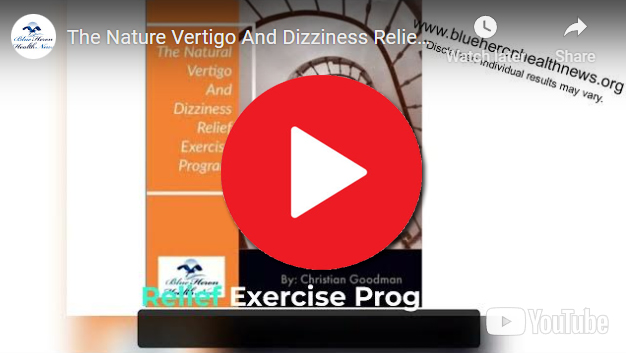The Nature Vertigo And Dizziness Relief Exercise Program™ Created by Christian Goodman, Vertigo and Dizziness Program is a designed to help stop vertigo and dizziness once and for all. Medical practitioner don’t know the exact cure for this condition but this program will show you exactly what you need to make this painful condition a thing of the past. This program has recommended a set of simple head exercises that help cure this condition. The remedy that the author has recommended are completely natural meaning that you won’t use medication or undergo through life-threatening surgical procedure. The set of exercises that he has recommended are easy and can be performed by anyone regardless of where they are or their current physical shape.
How is labyrinthitis treated?
Treatment for labyrinthitis focuses on alleviating symptoms, addressing the underlying cause, and helping the patient recover balance and hearing function. Here is a comprehensive approach to treating labyrinthitis:
1. Symptomatic Relief
– Medications to Manage Vertigo and Nausea
- Antihistamines: Medications such as meclizine (Antivert) and dimenhydrinate (Dramamine) can help reduce vertigo and motion sickness.
- Antiemetics: Drugs like promethazine (Phenergan) and ondansetron (Zofran) can alleviate nausea and vomiting.
- Benzodiazepines: Medications such as diazepam (Valium) or lorazepam (Ativan) may be prescribed to reduce severe vertigo and anxiety.
– Pain Relief
- Analgesics: Over-the-counter pain relievers like acetaminophen (Tylenol) or ibuprofen (Advil) can help manage ear pain and discomfort.
2. Treating the Underlying Cause
– Viral Infections
- Antiviral Medications: If a specific viral cause is identified, such as herpes simplex virus, antiviral medications like acyclovir (Zovirax) may be prescribed, although their effectiveness in labyrinthitis is not well-established.
– Bacterial Infections
- Antibiotics: If labyrinthitis is caused by a bacterial infection, such as from otitis media or meningitis, appropriate antibiotics are necessary to clear the infection. Intravenous antibiotics may be required for severe cases.
– Autoimmune Conditions
- Corticosteroids: Medications like prednisone can reduce inflammation and immune response in cases where labyrinthitis is suspected to be autoimmune-related.
3. Vestibular Rehabilitation Therapy (VRT)
– Purpose
- VRT involves specific exercises designed to help the brain compensate for inner ear dysfunction, improving balance and reducing dizziness.
– Components
- Balance Exercises: Activities that challenge and improve balance.
- Gaze Stabilization Exercises: Techniques to improve control of eye movements and visual focus.
- Habituation Exercises: Repeated exposure to movements or situations that provoke dizziness to reduce sensitivity over time.
4. Hearing Rehabilitation
– Hearing Aids
- If labyrinthitis has caused permanent hearing loss, hearing aids can help improve hearing function in the affected ear.
– Cochlear Implants
- In cases of severe hearing loss that do not benefit from hearing aids, cochlear implants may be considered.
5. Lifestyle and Home Remedies
– Rest and Hydration
- Ensure adequate rest and stay hydrated to help the body recover.
– Avoid Triggers
- Avoid activities that can worsen dizziness, such as sudden movements, bright lights, and excessive screen time.
– Gradual Activity Resumption
- Gradually return to normal activities as symptoms improve to prevent deconditioning.
6. Patient Education and Support
– Understanding the Condition
- Educate patients about labyrinthitis, its symptoms, and the expected course of recovery.
– Support Networks
- Encourage joining support groups or counseling if anxiety or depression arises due to prolonged symptoms.
7. Follow-Up Care
– Regular Check-Ups
- Follow up with healthcare providers to monitor recovery progress and adjust treatment as needed.
– Hearing and Balance Assessment
- Conduct periodic assessments of hearing and balance to evaluate the effectiveness of rehabilitation therapies and make necessary adjustments.
Conclusion
The treatment of labyrinthitis involves a combination of symptomatic relief, addressing the underlying cause, vestibular rehabilitation therapy, and hearing rehabilitation if necessary. Medications play a key role in managing vertigo, nausea, pain, and infection, while vestibular rehabilitation and lifestyle adjustments help patients regain balance and function. Regular follow-up and patient education are crucial for optimal recovery and long-term management of symptoms. If you suspect you have labyrinthitis, consult with a healthcare provider to receive a comprehensive evaluation and appropriate treatment plan.
The Nature Vertigo And Dizziness Relief Exercise Program™ Created by Christian Goodman, Vertigo and Dizziness Program is a designed to help stop vertigo and dizziness once and for all. Medical practitioner don’t know the exact cure for this condition but this program will show you exactly what you need to make this painful condition a thing of the past. This program has recommended a set of simple head exercises that help cure this condition. The remedy that the author has recommended are completely natural meaning that you won’t use medication or undergo through life-threatening surgical procedure. The set of exercises that he has recommended are easy and can be performed by anyone regardless of where they are or their current physical shape.

